Locating funding: An online resource to support Disabled People’s Organisations (DPOs)
These guidance notes are aimed at Disabled People's Organisations (DPOs) and are divided into different sections for ease of use. They provide an explanation of the key principles with additional hyperlinks for those people wanting in-depth information and real-life examples.
Resource contents
Writing a compelling Case for Support
Charitable Trusts and Foundations
Tips and hints on writing a successful bid to a Grant-giving Trust
Commissioned and Contracted work
Other ways to Generate funding include
One of the main challenges for DPOs is to know where to access the funds to deliver the support that Disabled people in their area need. In the current very competitive climate for funding, DPO CEOs can become overwhelmed by the many funding options available.
A potential risk when locating income is that of a DPO’s reputational damage by accessing funding from inappropriate sources, or through the delivery work that attracts funding, but local Disabled people feel it is against their wishes or to the detriment of the DPO’s mission and values.
Funding Strategy
A Funding Strategy will avoid this possibility. This document should be approved at Board level and sets out the Charity’s vision for the future. The Funding Strategy will set out the rationale, including evidence gathered outlining Disabled people’s views and other evidence to identify gaps in services that DPOs might wish to plug. This will ensure DPOs avoid ‘mission drift’ and show potential funders and accreditors that you clearly understand the wider fundraising context. This will increase your chances of funders supporting your DPO financially.
The key to an effective Funding Strategy is that it considers all forms of funding, including fundraising (e.g., Community events, sponsorship); Grant funding (e.g., from Big Lottery, independent Grants and Foundations); Charitable Giving (e.g., from donations and legacies) and Contract income (e.g., from District Councils, Local Authorities, NHS England). The key to sustainability for any DPO is through a balanced and diverse portfolio of funding streams.
When writing your Funding Strategy, consider the ‘what if’ question. What if my main contract ended? What if BLF ceased funding us after this grant ends? What if my legacy income drops by 50% next year? By asking these questions, you will start to think about potential risks to your DPO and how you/your trustees might mitigate against that risk.
Whilst this might sound difficult and a lot of work, your Funding Strategy can be a simple document, such as one side of A4, or it could be more complex and detailed. No time frame for a strategy is wrong (i.e 3, 5, 7 or 10 years), it just depends on what your Trustees want in the context of the external environment. What works best for your DPO will depend on your working methods, size, complexity and what you/your Board would prefer.
More information: Tips and hints on writing a fundraising strategy
Example: Disability Positive’s funding strategy
A final word on your Funding Strategy. Whilst you can write a standalone one, it must fit in with your wider DPO five- or ten-year Strategic Plan or Vision for the future. As a DPO, this more comprehensive strategy for the organisation must also be written in full consultation/co-production with local Disabled people, DPO members, Trustees, volunteers, and paid staff.
Example: Living Options Devon’s five-year strategic plan
Example: Disability Positive’s 10-year strategy
Funding Policy
A Funding Policy is a document describing which types of funds, including sponsors, contracts and grant income, the DPO believes are suitable for them to apply for. This is important to protect the DPO's reputation. The Funding Policy will usually expressly outline what authority the CEO has to submit funding applications when they need to report to the Board prior to submission, and other reporting arrangements are in place regarding funding applications.
Example: A generic DPO fundraising policy template
The reality is that the Funding Strategy, Marketing and Communications Strategy, and policies are very intricately linked. Below is an example of a comprehensive communications and marketing strategy from Disability Positive.
Example: Disability Positive’s marketing and communications strategy
Having written your funding strategy and funding policy, the next question is how to achieve them. This is where an annual Funding Plan is essential. Some people call this the ‘funding pipeline’ in which you list the various projects Disabled people have said are needed in your area, alongside which funders you will approach and when.
The Funding Plan is essential to ensure maximum success with your investment in funding applications. The aim of your Annual Funding Plan is to maximize bid-writing efficiency and effectiveness. On average, across the charitable sector, for every ten applications submitted, only one is likely to be successful. A good funding plan can improve this ratio significantly. It will also help you to reduce the possibility that you might ask a funder for a smaller amount than they would have allocated, had you asked for a larger amount. The key to more and bigger successful funding applications is the amount of research you undertake before applying. Ask yourself: What does the funder want to fund? Do your DPO aims fit with the funder or not? When is the best time of year to apply to this funder? Do they have set deadlines for applications?
Identifying timings for your applications on your Funding Plan is also very important. For example, when applying to independent Grants and Foundation, it is important to understand that it is considered courteous to wait at least 12 months to re-apply to that funder, even if for a different project. The only exception is when a funder specifically invites another funding application from your DPO sooner,
Example: Funding pipeline template
You will also need to consider whether in-house fundraising or outsourcing bid and tender writing is best for your DPO: In some DPOs, the CEO/senior manager writes all the tenders and grant applications. Whereas for others they find using a bid writer or fundraiser is more cost-effective.
Regarding the use of an outsourced fundraiser, there is also the question of whether they should be remunerated by results (i.e., only receive payment if the bid is successful) or are paid for the time they put into bid writing. Whilst ‘payment by results' might sound attractive, in the current competitive climate, bid writers are increasingly scarce and will often only agree to write bids if they consider there is a higher than 80% chance of success, in which case you might well be able to apply successfully to that funder anyway.
Example: Fundraiser Job Description and Person Specification
Writing a compelling Case for Support
Writing a compelling Case for Support is the bedrock of any funding application to a Charitable Trust or Foundation, and that is what your success rate will be based upon. The Case for Support is a clear summary of why the project is needed, why it is being delivered this way, and why your DPO is the best organisation to deliver it. Tips for success include:
- Keep the message clear and simple.
- Do not assume the funder understands the basics unless it is following a specific request, e.g., a call for projects to support Visually Impaired people would not need to outline the case for why that group are disadvantaged.
- Always clearly explain:
- why this project,
- why now
- Who else is doing similar things?
- Why have you chosen the length of the project?
- Why your DPO (Your Unique Selling Point)
- Summarise all your evidence of need, such as focus groups with Disabled people, Trustees/staff/volunteer feedback or conversations at meetings, surveys, etc.
- State the name of any supporters who also agree with this project is important.
- State the names of any partners/collaborators that you will work with to deliver the project.
- State the amount of funding that you require from that funder supported by a more detailed budget to ensure you are comfortable it can be delivered.
- Mention any match funding already secured, explaining what this new funder would get for the extra funds. This will give new funders confidence to contribute.
More information: Five key steps for effective case for support
More information: A comprehensive guide on writing a case for support from Institute of Fundraising guidance
Unique Selling Point (USP)
As part of this Case for Support, funders need to know why they should fund a DPO to deliver the work. The good news is that DPOs have an important and Unique Selling Point (USP) for all funders. They are run and led by the people who receive their services. This assures funders that we have a genuine and deep understanding of the issues facing Disabled and Deaf people through our ready access to those people who have lived experience of local services.
By engaging with your Disabled volunteers, Trustees, and staff, you are in a strong position to demonstrate the need for any project your members/service users want you to deliver. Once you understand ‘the need,’ you can then identify what your DPO wants to deliver/and what gaps in your service provision are. You can then ensure that what you are asking for on behalf of your beneficiaries will also deliver the funder’s outcomes.
Fundraising Governance (or keeping it legal). Following several scandals in relation to charity fundraising, tighter rules were introduced for external fundraisers.
The Charity Commission Website is an excellent resource and provides simple explanations of the legal rules around:
- what is required of a professional fundraiser or commercial participator?
- the statements that paid fundraisers must make, in some circumstances, when asking for funds from the public
- when charities must display their registered charity status on a range of documents and on their website
- collecting cash in the street
- collecting cash, goods or direct debit details door-to-door
- lotteries and raffles
- data protection when collecting or managing personal details such as names, contact details and credit or debit card details.
- avoiding unsolicited calls to numbers registered with the Telephone Preference Service (TPS) and Corporate Telephone Preference Service (CTPS)
- fundraising involving children.
- event fundraising
- commenting on your charity’s fundraising activity when preparing charity accounts or reports which are subject to the Statement of Recommended Practice (SORP)
More information: Fundraising legal requirements
More information: Fundraising legal rules
More information: A guide for Trustees on fundraising
You should report a serious incident to the Commission if the police or another regulator is investigating your charity for any reason.
The wide range of income streams for DPO’s to choose from:
Charitable Trusts and Foundations
More than 1,700 grant-giving charitable trusts and foundations were registered with the Charity Commission in 2020 in the UK (Civil Society Newsletter February 2021). Most grant-making trusts and foundations derive their income from an endowment (An Endowment is a capital sum given to them by an individual, family or company.) Grant-making Trusts have greater independence than almost any other sector or funder. They are extremely diverse, not only in scale and number of grants made but also in types of trust.
Pros for DPOs: Because they are often privately endowed, they do not rely on short-term popularity or government funding. They can be creative, flexible, and sometimes unorthodox in using their funds. Grant funding enables DPOs to try new things, pilot Disabled-led services and gather the data to apply for longer-term commissioned funding.
Conss for DPOs: Grants are usually relatively short term-i.e., Often one – three years funding, although some funders provide five-year funding (e.g. The Lottery and Henry Smith).
More information: A list of grant funders aligned with DPOs aims
There is a myriad of grant finder subscription websites which provide comprehensive and up-to-date information about UK grant-giving trusts and foundations. You can search for specific projects, beneficiary types, geography, and other criteria, which can be a useful way of narrowing down your search for suitable funders. Their fee structure varies so it’s worth spending the time to research them. See below for some examples.
Examples: Funds Online; Grant Finder; Grants Online
More information: The top 300 grant making foundations
Tips and hints on writing a successful bid to a Grant-giving Trust
The trick to success is to research what kinds of projects the funder you are considering applying for is interested in supporting. You need to really understand the funders’ motivations and their outcomes before deciding what to apply for from those projects outlined in your Fundraising Strategy.
More information: 12 top bid writing tips
There are many excellent one and two-day courses to develop your bid writing skills. Some of these are free, and others can be quite expensive. Your local Council for Voluntary Service (CVS) will often be able to provide local DPOs with advice and guidance around bid writing and/or suitable free courses.
Commissioned and Contracted work
Many DPOs have a range of contracted work alongside their grants, foundations, individual giving, and commercial income. This provides several advantages, namely:
- Commissioned contracts can sometimes be for three or even six years, and so if successful, it provides the DPO with a certain level of guaranteed income (assuming you deliver the requirements of the contract!).
- If the contract work is well aligned to your DPO’s stated strategic aspirations, it will go a long way to help you achieve your shared vision (EG Engagement work, statutory advocacy, Direct Payment Support services and other proven useful services for Disabled and Deaf people).
- A well-costed contract can represent full cost recovery where competition does not undercut the DPO by offering a loss leader approach.
However, the pitfalls might include.:
- Bidding for contracts that are not financially viable and likely to be expensive in legal and/or penalty fees to exit the contract early.
- Mission drift i.e., bidding for contracts which do not align with the DPO’s aims, thus risking reputational damage.
- If most of the DPO’s income is derived from one contract, it can be very stressful for everyone involved when it comes up for renewal. In the worst-case scenario, if the DPO loses the contract, they can go into liquidation due to an inability to fund the level of core costs required to service the contract, which cannot always be dismantled immediately (e.g., long-term premises lease, senior management team members, etc.)
To avoid these pitfalls, Disability Positive has identified a helpful approach to tendering opportunities explained in their Funding Strategy (see below) in which they have outlined how they will decide which tendering opportunities are suitable for their organisation.
Example: Disability Peteborough’s Funding Strategy (Document 1)
Having an effective triaging process for bid/tendering opportunities can help DPOs decide which tendering opportunities may be suitable. This process involves asking a series of questions, which are listed below:
- What is the geographical area of delivery? NB if the tender is outside the scope of your charitable purpose in terms of geography, you cannot apply for it without first changing your charitable purpose to accommodate it.
- What is the minimum and maximum value -is it an annual fee or hourly rate/? uplift for inflation etc? NB in the mandatory questions, most tenders link the contract value against the organisation's overall turnover from the previous year, requiring it not to exceed a certain %. You can usually find this stated in the small print. Look for that exclusion first to save time and energy, in case you later discover your organisation is not eligible. The finance questions are usually the best place to start. If you cannot make the money work, however good your quality is, it is unlikely that your DPO can afford to tender for the work, unless you have significant unrestricted reserves to draw down.
- Who are the service users for the service/project? Again, if it includes many non-Disabled people, you and your Trustees must consider carefully if it would breach your organisation’s charitable purpose by tendering for the opportunity. However, if it is about working with public sector staff to raise awareness about the needs of Disabled people, then that would fit within a DPO charitable purpose.
- Incumbent provider or competitive relationship? If not your DPO, who is the current provider for this work?
- Type of project/service. What is the nature of the work, which internal service might it sit with, if any, and where does it fit with the DPO strategy?
- Bidding Timeframes? What is the closing date for clarification questions, when does the bid need to be submitted by, when does it need sign off. Ask yourself whether it is realistic and what might be the DPO's reputational damage if you submit a poor bid due to tight timeframes.
- Partner availability/consortia? Who could be suitable partners (e.g., representative organisations in the local area)
- What are the termination clauses? Can my DPO exit this tender, and if so, how much notice is required? What notice and reasons do the commissioners have to give us?
- Inflationary increase? If the tender is for more than one year, with inflation currently running at 7%+ it is important to consider what needs to be built in for inflation. Some tenders include this as a matter of routine. Others do not, which, in effect, means a reduction in tender value over time whilst still having been contracted to deliver the same volumes.
All these questions are essential to ask before submitting a tender so there are no nasty surprises and/or so you do not waste a lot of time on a bid that was never going to be successful.
Tender writing tips: Competitive tender writing skills differ greatly from those required for grants and foundation bid writing, although one person can perfect both skill sets. Key points are:
- Make sure you read every single tender document very carefully. You must understand all the clauses and requirements as it will be a legal document.
- Consider what you/your organisation wants out of it and draw up your ‘red lines.’ It is quite easy to get caught up in trying to ‘win’ it while forgetting why you are tendering in the first place, i.e., to provide a Disabled-people-led service.
- Write a clear, realistic budget and project plan BEFORE you start answering the questions. The fact you know how and what you intend to deliver will be clear to the panel.
- Use simple language, not jargon.
- Time management: Have a ‘bid writing plan’ so you can upload it onto the portal 24 hours in advance in case you have IT issues on the day.
- Include case studies and quotes as well as numbers and quantitative data.
- Ensure you address every aspect of the specification requirements.
- Proofread your work for typos and grammar before submitting.
- Always keep strictly to the word count. Too many, and you will be excluded. Not enough and you are unlikely to gain enough points to win the tender.
Other ways to Generate funding include:
- Community Shares
- Crowdfunding
- Donations and fundraising
- Equity
- Finance
- Gift Aid
- Investment tax reliefs
- Social sector funding
More information: Other ways to generate funding | Sport England
Written in partnership between:
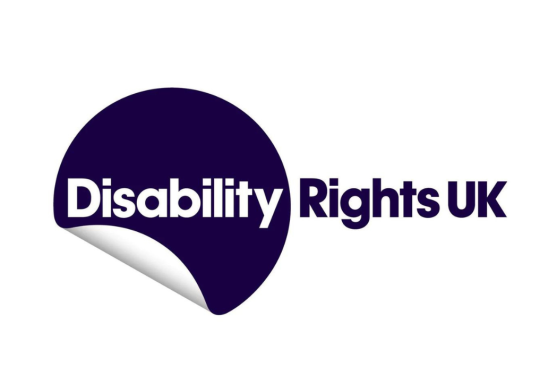
Disability Rights UK is the UK's leading organisation led by, run by, and working for Disabled people. They work with Disabled People's Organisations and Government across the UK to influence regional and national change for better rights, benefits, quality of life and economic opportunities for Disabled people.
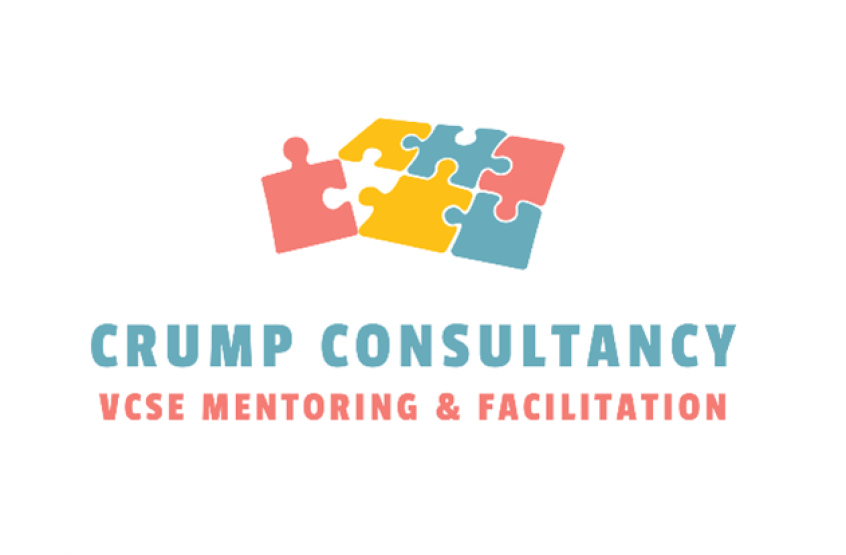
Diana Crump of Crump Consultancy was CEO of a successful County-wide DPO for over 17 years. She offers a fully accessible strategic support and mentoring service for DPO CEO's. She specialises in DPO support with a fee structure based on organisational turnover to ensure that all DPO's can benefit from her expertise and support, regardless of their size.
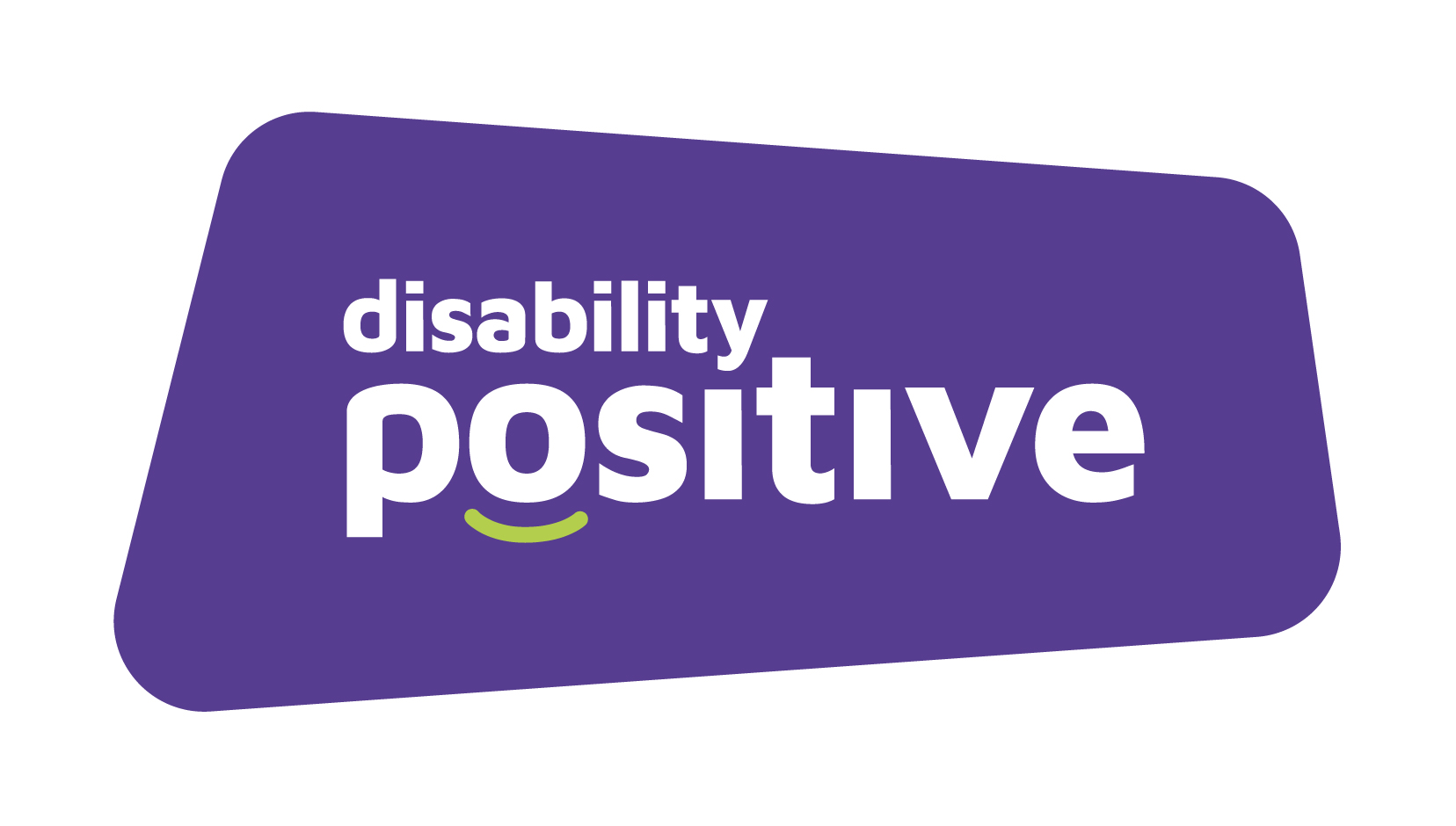
Disability Positive is a Cheshire based DPO that provide services, opportunities and a voice to Disabled people and people with long-term health conditions, and their families. Disability Positive provide services to help Disabled people with everyday life, being part of their local community and looking after their own wellbeing. They offer advice, help with practical tasks and advocate for people in lots of different situations.
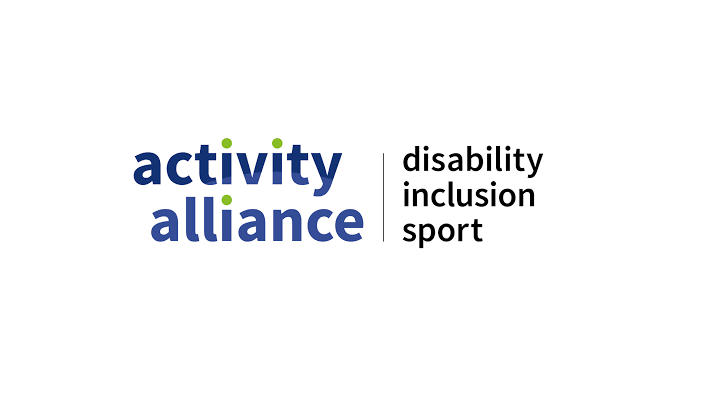
Activity Alliance is the leading voice for Disabled people in sport and physical activity, and its vision is fairness for Disabled people in sport and physical activity. They want to create a fairer society for everyone. A place where everyone can be active however and wherever they want to be. Activity Alliance's research and insight lead the way in helping to understand the barriers to sport and physical activity for Disabled people. They push for inclusion to be at the heart of all plans and work closely with organisations across various sectors to embed inclusive practice and change attitudes towards Disabled people in sport and physical activity for the better.

Chronically Brown is a non-profit organisation working towards tackling the stigma of disability within the South Asian community. They also work towards diversifying the Disabled community with campaign projects such as #desiabled. They have a range of services designed to work towards this such as workshops, discussion groups and many online resources.
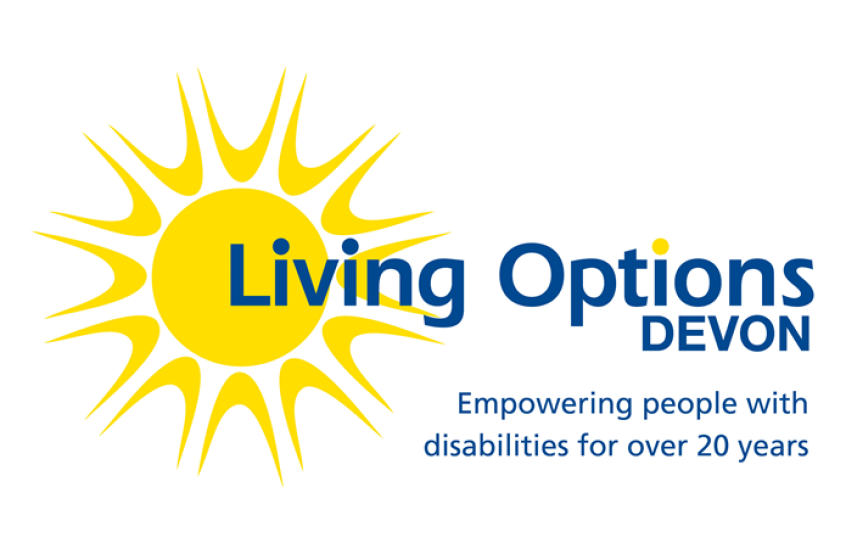
Living Options Devon is a DPO that supports Disabled and Deaf people across Devon to live the life they choose. They offer a range of help and support services for people with a long-term health condition, disability and /or who are Deaf, where British Sign Language is their first or preferred language. Services offered include counselling, independent advocacy, engagement work, countryside mobility (an all-terrain wheelchair hire service) and a range of services run by Deaf people for Deaf people.
